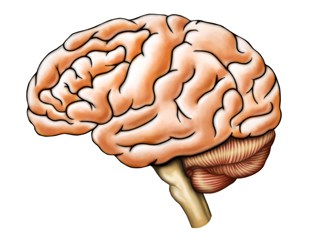How Does Our Memory Really Work?
More often than not people who forget something head straight to blaming it on their ‘bad memory!’ But which memory are they referring to? Years of extensive research have concluded that memory is not a unique system. In fact it is made of various kinds of memory. The most recognized difference is between short-term and long-term memory.
Short and Long-Term Memory Explained
Think of short-term memory as temporary. It holds information for a short duration, up to one minute. An example is searching for a number in the phone book: typically you will remember that number just long enough to punch it in and then it just seems to dissipate from your mind.
Short-term memory is also called working memory as it allows you to hold on to information in your mind but also to use it for the task at hand. This type of memory requires the use of the frontal and parietal parts of your brain.
Long-term memory allows you to remember what happened 2 minutes ago, last week, five months ago, 15 years ago. It seems as if long-term memory has no boundaries.
Researchers further distinguish between two types of memory within long-term memory: explicit and implicit memory.
Explicit and Implicit Long-Term Memory
Explicit memory, also known as declarative is a conscious and intentional recall of specific events. Remembering where you went on vacations last summer is an example of explicit memory.
Implicit memory or procedural memory is the unconscious and non-intentional recall of events. Driving, playing an instrument or riding a bike are examples of implicit memory because they can’t be translated into words.
Different brain areas support these two memories. The temporal and frontal portions of the brain are used for explicit memory. The hippocampus within the temporal lobe is essential here. This is the first structure that Alzheimer’s disease damages.
Implicit memory uses numerous structures within your brain, depending on the knowledge involved. For instance, when you are remembering how to ride a bike or tie your shoe, procedural memory relies mainly on the cerebellum.
Two Kinds of Explicit Memory
Episodic and semantic memories are two forms of explicit memory.
Episodic, or autobiographical, memory encompasses the recall of specific events in one’s life. Examples are remembering what you had for lunch yesterday or the first school you went to.
Any memory you have that isn’t episodic is thus semantic. For example, maybe you know that Toronto is in Ontario but don’t remember exactly when or where you learned that. It is basically general knowledge in your mind and no longer a specific episode of your life.
How Does Aging Affect Memory?
The way age affects memory is different depending on the memory system you are talking about. Semantic and implicit memory are relatively untouched with age. Age takes its greatest toll on working memory, and also has an impact on episodic memory. Although the recall of autobiographical memories may not be affected too much, problems can develop when trying to register new events in the brain.
So you see that memory is a fairly complex system. Next time you complain about how bad your memory is don’t forget that parts of it are still probably working really well. And never forget that you can always improve your memory or keep it sharp. How? Keep using it!







